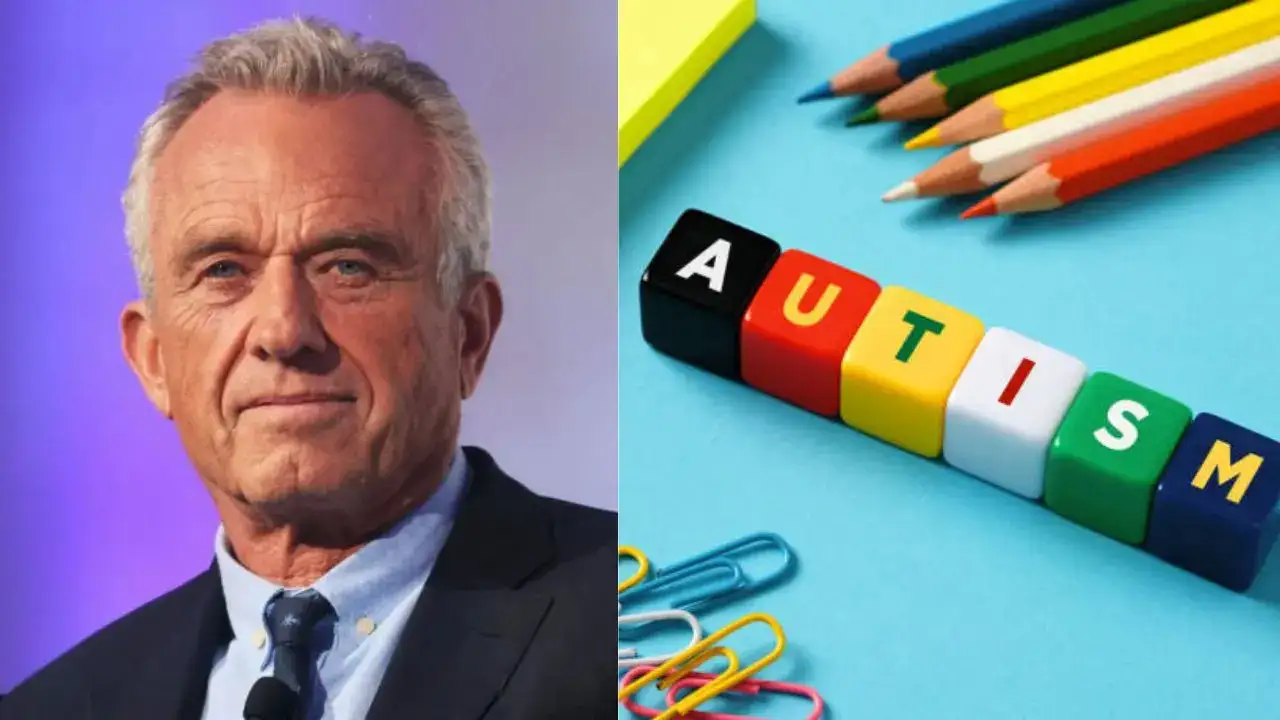Ashima Sharda Mahindra • 19 Apr 2025
RFK Jr.'s Comments on Autism Draw Sharp Reactions; Here’s Why the Condition is Often Misunderstood

Kennedy announced a directive to investigate what he called 'environmental exposures' that he claimed could be contributing to that rise in diagnoses
US Health and Human Services Secretary Robert F. Kennedy Jr.’s recent remarks against children with autism are meeting with sharp criticism from parents and experts. His critics are saying Kennedy’s remarks about autism reinforce harmful stereotypes regarding the condition and ignore the diversity and potential of people on the autism spectrum.
"He's spreading fear and misinformation," Beth Hoffman, a Maryland-based mom of a 10-year-old non-speaking son with autism, was quoted by ABC News.
The backlash is a result of a report by the Centers for Disease Control and Prevention showing that autism diagnoses are on the rise, affecting 1 in 31 8-year-olds in the US in 2022. On the heels of the report, Kennedy announced a directive to the National Institutes of Health to investigate what he called "environmental exposures" that he claimed could be contributing to that rise in diagnoses.
He also called research into the genetic factors that scientists say play a vital role in whether a child will develop autism “a dead end.” “Genes don’t cause epidemics,” he said. “You need an environmental toxin.”
According to the CDC, the rates of autism among children have increased nearly fivefold since 2000, when the health organization first began collecting data on the condition’s incidence in children. The new report has attributed some of the increase in autism’s prevalence to more screening for the condition. Experts have also pointed to many other factors—which include greater awareness of what autism looks like, more access to services, more parents having children later in life, and broader definitions of the disorder.
Advocates of autism said they have been dismayed to hear Kennedy's blanket characterisation of children with autism: "They'll never pay taxes, they'll never hold a job, they'll never play baseball, they'll never write a poem, they'll never go out on a date. Many of them will never use a toilet unassisted," he said in the press conference in Washington, DC.
What is autism spectrum disorder?
According to experts, autism—a condition that defines the difference in how your child’s brain works and shapes how they interact with the world around them—is something they are born with.
Doctors say it does not have anything to do with your parenting style, foods, vaccines, or anything else your child encountered after birth.
Autism is often misunderstood
For decades, many people have misunderstood the condition when earlier many forms of behavioural therapy used strict methods to try and get kids to act and talk like their peers. However, as times have changed, to help autistic kids and their families gain skills, therapies are more concentrated on helping them come out of a certain mould.
Still, many autism myths still exist.
What causes autism?
Even though a single cause of autism has not been found yet, scientists believe it is likely a combination of genetics and many other things related to pregnancy, labour, and delivery. These factors all interact to lead to the brain differences we see in autism.
Specific things that may make autism more likely in your child include:
- Becoming pregnant over the age of 35 years
- Becoming pregnant within 12 months of having another baby
- Having gestational diabetes
- Having bleeding during pregnancy
- Using certain medications in pregnancy
- Smaller than expected fetal size
- Reduced oxygen to the fetus during pregnancy or delivery
- Early birth
Get Latest News Live on Times Now along with Breaking News and Top Headlines from Health and around the world.